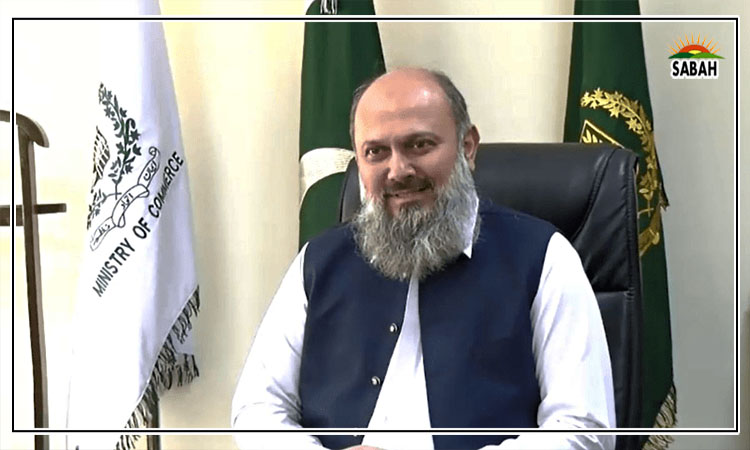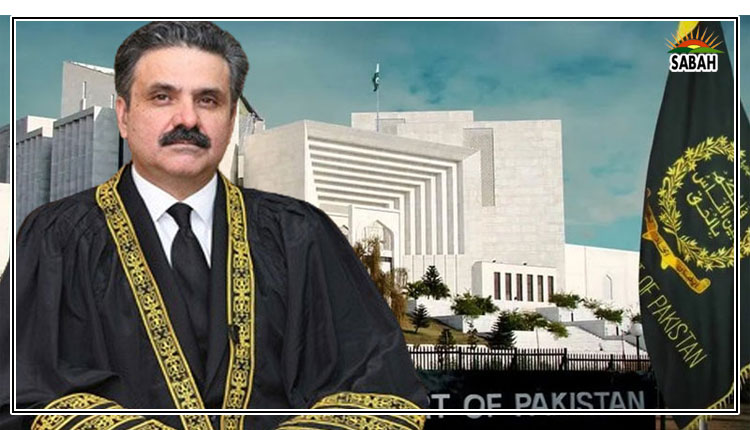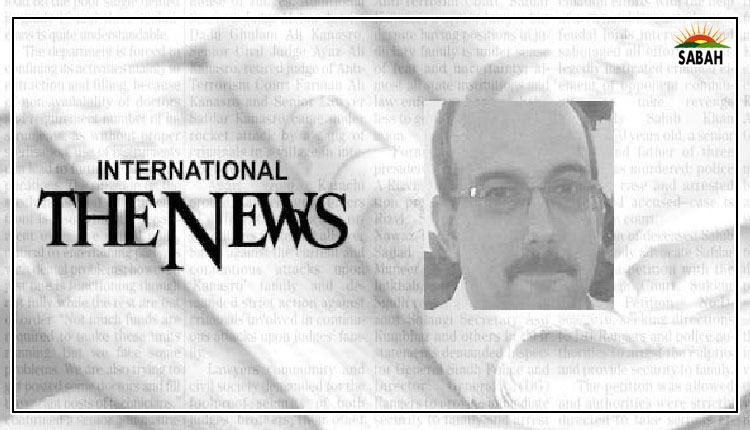Karamat Ali: Our man of integrity ….. Dr Naazir Mahmood
Last week, Pakistan lost its veteran labour unionist, Karamat Ali. The values embedded in him revolved around human rights, labour associations, regional peace and social justice.
His assumption was simple: a better world for the working class is possible through active civil society organizations and by consistent attempts to forge alliances with people across borders.
We lost Karamat Ali at the age of 79 on June 20, 2024 in Karachi, a city where he established his flagship project, the Pakistan Institute of Labour Education and Research (PILER). My association with Karamat Ali goes back to the 1980s when I was a college student and he was already an established activist and labour leader. Be it an event at PILER or gatherings at the PMA; discussions at the Progressive Writers Association (PWA); protests at the Karachi Press Club; literary festivals at the Arts Council of Pakistan; or conferences that the Pak-India Peace Forum organized both in India and Pakistan, Karamat Ali was mostly conspicuous by his active leadership.
He was nearly 20 years older than me but always spoke on equal terms with respect and dignity. We travelled together a couple of times to India where he commanded immense admiration among peace activists and progressive circles. His commitment to regional peace and interfaith harmony was visible in his activities until his last days.
Karamat Ali was a mentor and teacher to many, and there is hardly any democratic or secular person in South Asia who did not come across or did not know him well.
Thanks to Dr Jaffar Ahmed’s oral history project at the Institute of Historical and Social Research (IHSRA) of Sohail University in Karachi, Karamat Ali’s memoirs ‘Raah Guzar to Dekho’ became available to readers in 2020. This 250-page book is an invaluable source of information about Karamat Ali’s life and struggle since the 1960s. The book chronicles the labour movement from the inception of Pakistan to the 21st century. Karamat Ali emerges as an indomitable fighter for labour rights and democratic freedoms in the country.
Karamat Ali’s parents migrated from Gurdaspur in East Punjab to Lahore and then to Multan where he spent his early childhood before moving to Karachi. He developed an aversion to religious fanaticism from his early years when he noticed hypocrisy and sectarian hatred. Karamat Ali started his student politics under the military dictatorship of General Ayub Khan and received his early inspiration from student leaders of the National Students Federation (NSF) such as Ali Mukhtar Rizvi, Fatehyab Ali Khan, Hussain Naqi, Jauhar Huassin, Mairaj Muhammad Khan, Nafees Siddiqui, and others who were expelled from Karachi and then from Sukkur for their activism.
Still a teenager, Karamat became an eyewitness to the labour movement of the early 1960s and then actively participated in the student movement of the late 1960s. Interestingly, Karamat Ali studied for some time at Karachi Polytechnic where I was also a student 20 years later, in the 1980s when the country was under another military dictator Gen Ziaul Haq.
During the trade union movement, he received his early training from leaders such as Anis Hashmi, Anita Ghulam Ali – who taught Karamat Ali at SM Science College and was an active leader of the teachers’ movement – Nabi Ahmed and Wahid Bashir. When the Sino-Soviet spilt occurred in the world socialist movement, left-wing parties in Pakistan also suffered from pro-Chinese and pro-Soviet divisions.
When NAP spilt into the Bhashani and Wali groups, Karamat Ali joined the pro-China Bhashani group whereas my father remained associated with the pro-Soviet Wali group of NAP. When the 1970 elections approached, the Bhashani group boycotted the elections and it became an easy victory for the Awami League of Mujibur Rehman in East Pakistan.
Later Karamat Ali regretted that his pro-China group never raised a voice against the atrocities in East Pakistan during the military action in 1971. Yahya Khan and his generals had supported right-wing parties in the hope of a split mandate in those elections.
General Sher Ali Pataudi who was a minister in Gen Yahya’s cabinet ended up in jail with Karamat Ali and others when ZA Bhutto put them behind bars. After his release, Karamat Ali became the general secretary of the Muttahida Labour Federation in 1974. He could not continue his education, which he resumed in the early 1980s when he joined the International Institute of Social Studies (ISS) in Holland, acquiring his Master’s degree in labour and development. Karamat Ali also worked as an assistant to Sadequain who painted a mural in the Lahore museum.
He was one of the most prominent persons who started his professional career as a factory labourer and graduated to become an advocate for better wages and working conditions for workers in both the formal and informal sectors. Politically speaking, he remained involved in left-wing politics from the platforms of the National Awami Party (NAP Bhashani group), the Pakistan National Party (PNP) of Mir Ghaus Bakhsh Bizenjo and several other progressive political organizations. Under ZA Bhutto and Gen Zia regimes, Karamat Ali also spent some time behind bars for his labour-union activities.
PILER was his brainchild, an organization that worked for the ideological and professional education and training of workers and also served as an epicentre of peace activities in South Asia, hosting multiple international conferences and seminars for the promotion of peace and against the arms race in the region.
Close contacts with other organizations in the region and across the continents enabled Karamat Ali to play a prominent role in civil society initiatives for common causes. After the collapse of the socialist bloc and the disintegration of the Soviet Union, while many left-wing activists lost their interest in intellectual pursuits and politics, Karamat Ali remained steadfast in his struggle for social justice.
He reflected on erstwhile left politics in Pakistan with a critical eye and shared with his juniors the lessons he learned and the mistakes labour associations and trade unions committed over the decades. With keen observations, he could analyze some of the most crucial periods in the labour movement in the country and draw conclusions that were insightful.
He seldom talked about himself and preferred highlighting his comrades’ achievements. The distinguishing characteristics of his life and struggle were striving for peace, fighting for social justice, defending human rights, and demanding democracy with all its features.
In 2022, PILER celebrated 40 years of its existence and remembered all those who contributed to its success from labour leaders Nabi Ahmed and architect Dr Arif Hasan to psychologist Zaki Hasan and activist BM Kutty who also served as PILER’s joint director for a long time. Despite his being a staunch progressive and secular individual, we could not find any rigidity in his approach to solving social problems.
Admitting his and his colleagues’ lack of understanding about political developments at certain stages, he was open to self-criticism; but at no point in his life did he compromise on his integrity.
Some of his closest associates and friends at the national and international levels included the communist leader Subho Gyanchandani, British MP Tony Benn, Sindhi nationalist leader Rasul Bux Palijo, columnist MB Naqvi, Indian senator Nirmala Deshpande who was ‘didi’ to many of us, PNP leader BM Kutty, engineer and former federal secretary Ghulam Kibria, Indian journalist Praful Bidwai, and Dr Zaki Hasan; Karamat acknowledged their role in his life with an open heart.
In short, he lived an active and eventful life that was to be envied by many of his juniors. His contribution to the labour movement in Pakistan and to regional peace in South Asia will long remain etched in the memories of his admirers and comrades.
Twitter/X: @NaazirMahmood
Email: mnazir1964@yahoo.co.uk
The writer holds a PhD from the University of Birmingham, UK.
Courtesy The News












